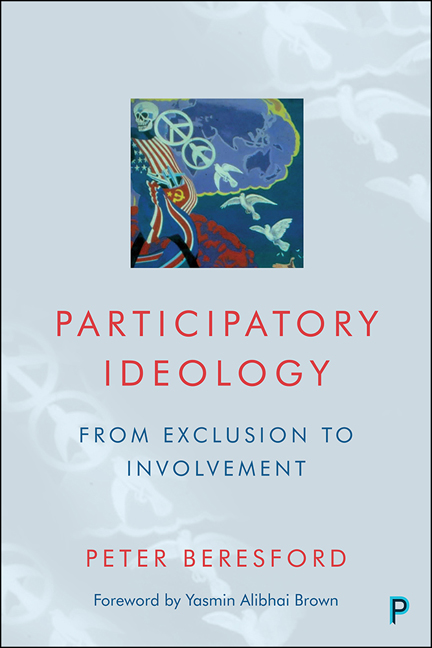5 - Participation: challenging the barriers
Published online by Cambridge University Press: 21 December 2021
Summary
A voice is a human gift; it should be cherished and used, to utter as fully human speech as possible. Powerlessness and silence go together.
Margaret Atwood, Canadian poet and writer, quoted in Adams, 2009This chapter looks at overcoming the powerful barriers that can prevent us having any involvement in the ideologies that are the backdrop to our lives. To reiterate, the focus of this book is political ideology and the exclusion of most people from its formation and development. Ideology may be a particular example, but the reality is that most people have little involvement or say in most organisations, policies, institutions, processes and political structures that affect their lives. As we have noted, there has been an enormous increase in interest in public and other participation in recent years. Yet it remains far from a routine reality. Much of the discussion about it is simplistic and superficial – as though progressing participation is only a matter of deciding to do it. The fact that involvement is often so limited should serve as a warning that this is generally far from the case. Much more than good intentions and warm feelings are likely to be needed for it to become a reality – especially in the contentious domain of political ideology. Ironically, in recent years, some disabled people – despite being part of a marginalised group and because of their collective skill and determination – have gained more say and involvement than many non-disabled people.
For all the comforting talk about ‘getting involved’, ‘listening to your views’ and ‘hearing what you say’, power and wealth have arguably never been so narrowly concentrated internationally or class and global inequalities so great (Dorling, 2015). For all the rhetoric about participation and involvement, understated issues of power and power inequalities continue to be central. Power is perhaps the third crucial concept that we need to subject to more careful consideration in this discussion, since power and our relations to it are central to what say and involvement we are actually really likely to have and how far we are able to gain ownership of ideologies.
Power
In the first part of this book we encountered the two-way relationship between power and ideology. Power gives force to ideology, making it possible to impose it, while ideology is often used to legitimate power.
- Type
- Chapter
- Information
- Participatory IdeologyFrom Exclusion to Involvement, pp. 71 - 86Publisher: Bristol University PressPrint publication year: 2021



